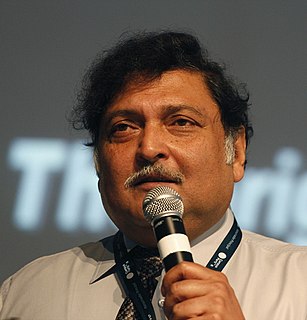Top 45 Quotes & Sayings by Sugata Mitra
Explore popular quotes and sayings by an Indian educator Sugata Mitra.
Last updated on December 21, 2024.
The best schools tend to have the best teachers, not to mention parents who supervise homework, so there is less need for self-organised learning. But where a child comes from a less supportive home environment, where there are family tensions perhaps, their schoolwork can suffer. They need to be taught to think and study for themselves.
My wish is to help design the future of learning by supporting children all over the world to tap into their innate sense of wonder and work together. Help me build the School in the Cloud, a learning lab in India, where children can embark on intellectual adventures by engaging and connecting with information and mentoring online. I also invite you, wherever you are, to create your own miniature child-driven learning environments and share your discoveries.




















